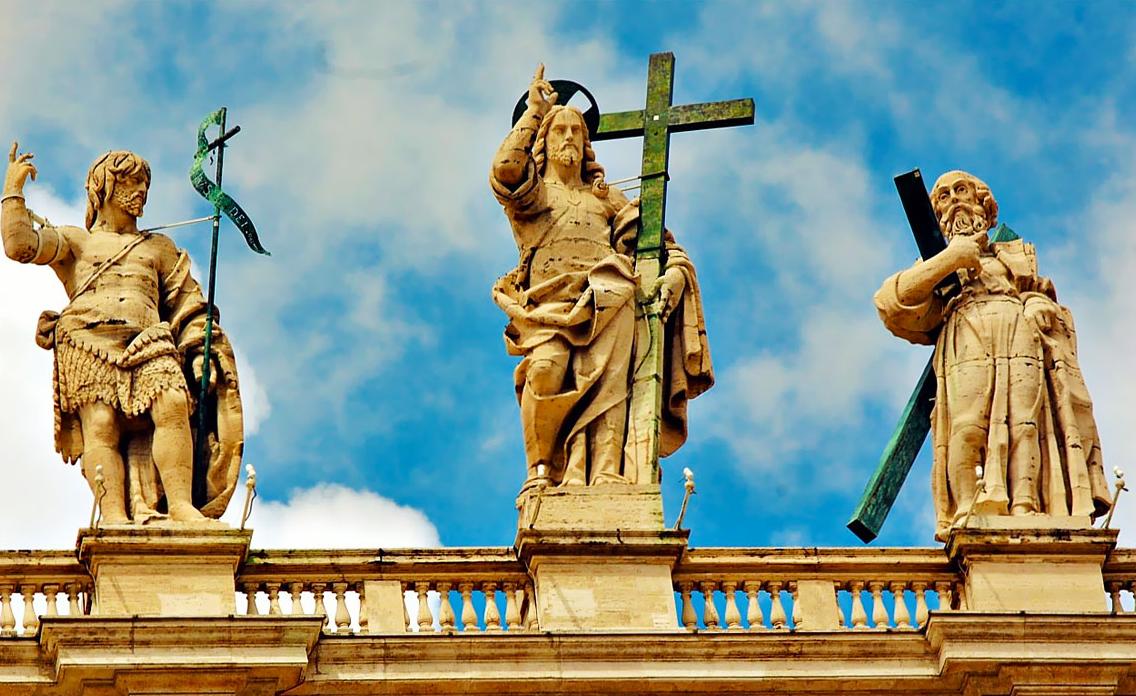Domanda: Sono una donna molto anziana (ho più di ottant'anni). Quando feci il catechismo ricordo che si diceva che al di fuori della Chiesa non vi è possibilità di salvezza. Ora sembra che nessuno più affermi una tal cosa. È cambiata la dottrina? Ma se è davvero cambiata, chi ci dice che ciò che si afferma oggi sia più vero rispetto a ciò che si affermava ai miei tempi? Aiutatemi a capire. (Maria Gabriella, Teramo)
Gentile Maria Gabriella, stia tranquilla. La dottrina cattolica non è affatto cambiata. Piuttosto si è da tempo diffusa, anche all'interno degli ambienti cattolici, una mentalità di tipo relativista (tutte le religioni sono buone).
L'Extra Ecclesiam nulla salus è un'incontestabile verità di fede, è lo è perché è stata continuamente ripetuta dai Padri e dal Magistero. Di esempi se ne potrebbero fare tanti. Le cito Pio XII che dice: «Ora tra le cose che la Chiesa ha sempre predicate e che non cesserà mai dall'insegnare, vi è pure questa infallibile dichiarazione che dice che non vi è salvezza fuori della Chiesa» (Lettera al Sant'Officio, dell'8/11/1949). Queste parole sono importanti perché un papa dice chiaramente che la verità dell'Extra Ecclesiam nulla salus non solo sarà sempre insegnata ma è anche una dichiarazione infallibile.
Il Beato Giovanni XXIII, il Papa del Concilio Vaticano II, dice: «(...) gli uomini possono sicuramente raggiungere la salvezza, solamente quando sono a lui [il Romano Pontefice] congiunti, poiché il Romano Pontefice è il Vicario di Cristo e rappresenta in terra la sua persona» (Omelia nel giorno della sua incoronazione, 4/11/1958).
E lo stesso Concilio Vaticano II afferma: «Il santo Concilio (...) basandosi sulla sacra Scrittura e sulla Tradizione, insegna che questa Chiesa peregrinante è necessaria alla salvezza» (Lumen gentium, 14).
Poi, cara lettrice – diciamolo francamente – è un problema di logica. Se la Chiesa non fosse necessaria per la salvezza, quale sarebbe il motivo per cui Gesù ha comandato di andare fino agli estremi confini della Terra? (Mt. 16,15-16).
Rimane però una domanda: ma chi si trova senza colpa personale fuori della Chiesa, può, per questo, essere condannato? La Chiesa Cattolica da sempre (non è una novità degli ultimi tempi) ha affermato che chi si trova fuori della Chiesa senza colpa, non può, per questo, essere condannato.
S'ipotizzano due possibili "ignoranze": la cosiddetta "dotta ignoranza" e la cosiddetta "ignoranza invincibile".
Per dotta ignoranza (significativa contraddizione: "dotta"/"ignoranza") s'intende quella situazione in cui non si è mai ricevuto l'annuncio cristiano, per cui si è in uno stato d'ignoranza incolpevole, ma nello stesso tempo si desidera intimamente (ecco perché si parla d'ignoranza "dotta") aderire alla Verità che purtroppo non si conosce.
Per ignoranza invincibile s'intende invece quella situazione in cui si è ricevuto l'annuncio cristiano, ma lo stato d'ignoranza è tale (invincibile appunto) che non si può superare. Il beato Papa Pio IX, un papa non certo del periodo post-conciliare, afferma nell'enciclica Singolari quidam del 17/3/1856: «(...) nella Chiesa Cattolica, per il fatto che essa conserva il vero culto, vi è il santuario inviolabile della fede stessa, e il tempio di Dio, fuori del quale, salvo la scusa di una invincibile ignoranza, non si può sperare né la vita né la salvezza».
Si presenta adesso una questione: se ci si può salvare perché senza colpa si è fuori della Chiesa Cattolica, allora viene meno il "Fuori della Chiesa non c'è salvezza"...
E invece non c'è contraddizione. Condizione necessaria per far parte della Chiesa è ricevere il battesimo. Ma non esiste solo il "battesimo-di-acqua" (quello che viene amministrato ordinariamente), esistono anche il "battesimo-di-sangue" e il "battesimo-di-desiderio". Il battesimo-di-sangue riguarda il martirio subìto senza che ancora si è ricevuto il Battesimo. Il battesimo-di-desiderio invece è quando un adulto in attesa di ricevere il battesimo dovesse morire improvvisamente.
Prendiamo in considerazione quest'ultimo tipo di battesimo. Colui o colei che si trova nella situazione della dotta ignoranza o dell'ignoranza invincibile ha un desiderio di aderire al vero Dio; è un desiderio implicito e non esplicito, ma è ugualmente un desiderio. Dunque, non è formalmente nella Chiesa, ma lo è sostanzialmente. E lo è sostanzialmente grazie a una sorta di battesimo-di-desiderio.
In questo modo viene tanto salvaguardato il principio giusto che possano salvarsi coloro che in buona fede non sono cattolici, quanto il principio dell'Extra Ecclesiam nulla salus. A proposito del desiderio implicito, Papa san Pio X, nel suo celebre Catechismo, dice: «Chi, trovandosi senza sua colpa, ossia in buona fede, fuori della Chiesa, avesse ricevuto il Battesimo, o ne avesse il desiderio almeno implicito; cercasse inoltre sinceramente la verità e compisse la volontà di Dio come meglio può; benché separato dal corpo della Chiesa, sarebbe unito all'anima di lei e quindi in via di salute».
Rimane ancora un'altra questione: qual è il criterio che il Signore utilizza per capire se un'anima desidera davvero aderire a Lui? Vi è da dire che qui c'è molta confusione. Spesso si dice: se qualcuno senza colpa non è cattolico, è bene che pratichi "bene" la propria religione. Ciò è invece sbagliato.
Se il desiderio implicito di aderire al vero Dio si deve esprimere con lo sforzo di praticare bene la propria (falsa) religione, allora ciò significherebbe che ogni religione è di per sé "via di salvezza"; e se così fosse, verrebbe meno l'esclusivismo salvifico della Redenzione di Cristo.
Piuttosto il criterio è un altro: lo sforzo riguarda non la pratica della propria religione, ma l'adesione alla legge naturale. Certamente possono salvarsi anche i musulmani, gli induisti, i buddisti... incolpevoli per il loro non essere cristiani, ma non grazie all'essere musulmani, induisti e buddisti, bensì malgrado siano musulmani, induisti, buddisti ... o quant'altro.
Corrado Gnerre
(Fonte: dalla rivista RADICI CRISTIANE)








